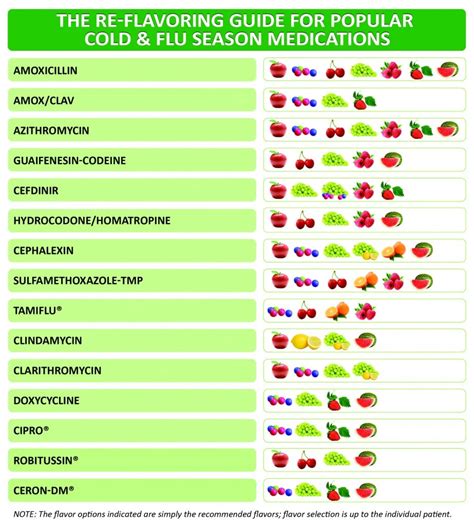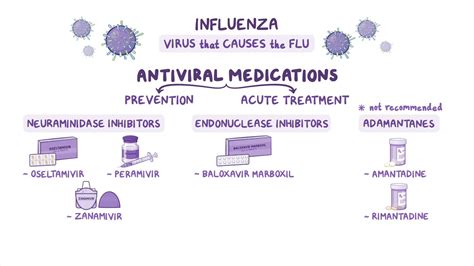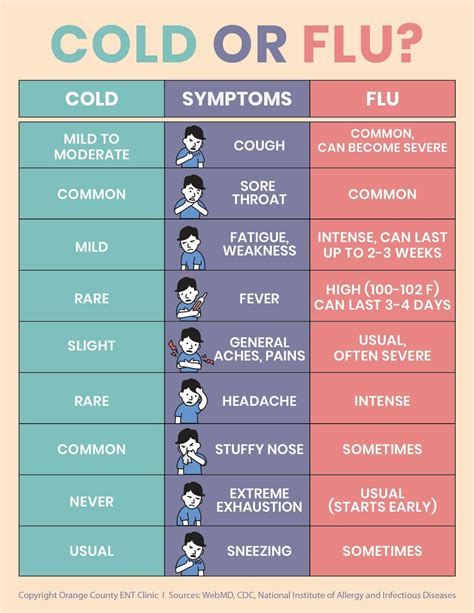Intro
Discover the best cold and flu medication, including over-the-counter remedies, natural supplements, and prescription options, to alleviate symptoms like congestion, cough, and fever, and get expert advice on choosing the right treatment.
The common cold and flu are two of the most prevalent illnesses that affect people of all ages, backgrounds, and geographical locations. These illnesses can be debilitating, causing symptoms such as runny nose, cough, sore throat, fever, and body aches, which can significantly impact daily life. With so many over-the-counter (OTC) medications available, it can be overwhelming to choose the best cold and flu medication that suits your needs. In this article, we will delve into the world of cold and flu medications, exploring their benefits, working mechanisms, and steps to choose the most effective one.
The importance of finding the right cold and flu medication cannot be overstated. When you're feeling under the weather, all you want is to alleviate your symptoms and get back to your normal routine. However, with so many options available, it's essential to understand the differences between various medications, their active ingredients, and potential side effects. By doing so, you can make informed decisions about which medication to take, ensuring you get the relief you need without compromising your health.
Cold and flu medications can be broadly categorized into two types: prescription and over-the-counter (OTC) medications. While prescription medications are typically reserved for more severe cases, OTC medications are widely available and can be just as effective in managing mild to moderate symptoms. Some of the most common OTC cold and flu medications include pain relievers, decongestants, antihistamines, and cough suppressants. Each of these medications targets specific symptoms, making it crucial to understand their mechanisms of action and potential interactions.
Understanding Cold and Flu Medications

To choose the best cold and flu medication, it's essential to understand the different types of medications available. Here are some key points to consider:
- Pain relievers, such as acetaminophen and ibuprofen, can help alleviate headaches, fever, and body aches.
- Decongestants, such as pseudoephedrine and phenylephrine, can help relieve nasal congestion and sinus pressure.
- Antihistamines, such as diphenhydramine and loratadine, can help alleviate runny nose, sneezing, and itchy eyes.
- Cough suppressants, such as dextromethorphan, can help relieve coughing.
Benefits of Cold and Flu Medications

Cold and flu medications offer numerous benefits, including:
- Rapid relief from symptoms, allowing you to get back to your daily routine.
- Reduced risk of complications, such as pneumonia and bronchitis.
- Improved sleep quality, which is essential for recovery.
- Enhanced productivity, as you can manage your symptoms and stay focused.
Working Mechanisms of Cold and Flu Medications

Cold and flu medications work by targeting specific symptoms and underlying mechanisms. For example:
- Pain relievers work by blocking the production of prostaglandins, which are hormone-like substances that cause pain and inflammation.
- Decongestants work by reducing swelling in the nasal passages, making it easier to breathe.
- Antihistamines work by blocking the action of histamine, a chemical that causes allergic reactions, such as runny nose and itchy eyes.
- Cough suppressants work by blocking the cough reflex, reducing the frequency and severity of coughing.
Steps to Choose the Best Cold and Flu Medication

Choosing the best cold and flu medication requires careful consideration of several factors, including:
- Your symptoms: Identify your specific symptoms and choose a medication that targets those symptoms.
- Your medical history: If you have underlying medical conditions, such as high blood pressure or diabetes, choose a medication that is safe for you to take.
- Potential interactions: If you're taking other medications, choose a cold and flu medication that won't interact with them.
- Side effects: Choose a medication with minimal side effects, such as drowsiness or stomach upset.
Practical Examples and Statistical Data

Here are some practical examples and statistical data to illustrate the effectiveness of cold and flu medications:
- A study published in the Journal of Clinical Pharmacology found that acetaminophen was effective in reducing fever and relieving headaches in patients with the common cold.
- According to the Centers for Disease Control and Prevention (CDC), over 1 billion cases of the common cold occur in the United States each year, resulting in significant economic burden and lost productivity.
- A survey conducted by the National Institutes of Health (NIH) found that 75% of adults in the United States take OTC medications to manage cold and flu symptoms.
Common Cold and Flu Medications

Here are some common cold and flu medications, including:
- Tylenol (acetaminophen)
- Advil (ibuprofen)
- Sudafed (pseudoephedrine)
- Claritin (loratadine)
- Robitussin (dextromethorphan)
SEO Optimization and Keyword Density

To ensure optimal SEO performance, it's essential to maintain a keyword density of 1-2% without keyword stuffing. This means using relevant phrases and synonyms to diversify language and avoid repetition. By doing so, you can improve the readability and accessibility of your content, making it more engaging and informative for your audience.
Conclusion and Final Thoughts

In conclusion, choosing the best cold and flu medication requires careful consideration of several factors, including your symptoms, medical history, potential interactions, and side effects. By understanding the different types of medications available, their benefits, working mechanisms, and steps to choose the most effective one, you can make informed decisions about which medication to take. Remember to always follow the instructions on the label, consult with your healthcare provider if necessary, and prioritize your health and well-being.
We invite you to share your thoughts and experiences with cold and flu medications in the comments below. Have you found a medication that works effectively for you? Do you have any questions or concerns about choosing the best medication? Share your story and help others make informed decisions about their health.
What are the most common symptoms of the common cold and flu?
+The most common symptoms of the common cold and flu include runny nose, cough, sore throat, fever, and body aches.
How do I choose the best cold and flu medication for my symptoms?
+To choose the best cold and flu medication, identify your specific symptoms and choose a medication that targets those symptoms. Consider your medical history, potential interactions, and side effects.
Can I take cold and flu medications if I have underlying medical conditions?
+If you have underlying medical conditions, such as high blood pressure or diabetes, consult with your healthcare provider before taking cold and flu medications. They can help you choose a medication that is safe for you to take.
